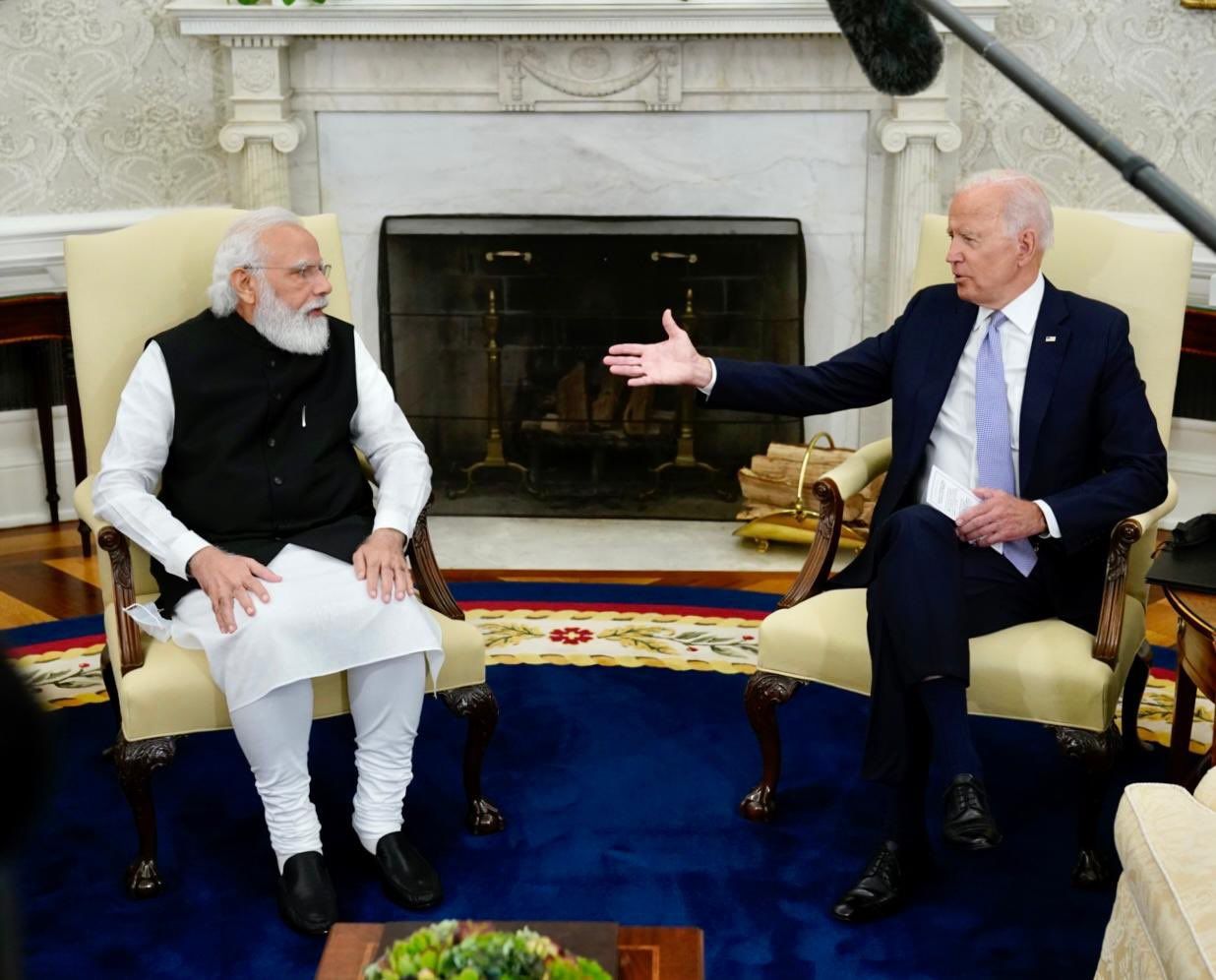Indian Prime Minister Narendra Modi, during his bilateral talks with US President Joe Biden emphasized on the importance of trade between the two countries.
“Trade holds importance on its own between India and the US. In this decade, we can be complementary to each other. There are many things with the US, that are needed by India and many things with India that can be useful for the US. Trade will be a major sector in this decade,” Modi said.
Modi is on his seventh visit to the US since assuming the post of the Indian prime minister in 2014. Post the bilateral talks with Biden, he will be attending the first ever in-person Quad Summit with Japan, US and Australia.
Also read: Modi, Biden refer to Mahatma Gandhi’s values during bilateral talks
The Indian leader started his talks with Biden by thanking the democrat for the ‘warm welcome’ he and his delegation received.
In a statement, PM Modi said, “I thank you for the warm welcome accorded to me and my delegation. Earlier, we had an opportunity to hold discussions, and at that time you had laid out the vision for India-US bilateral relations. Today, you are taking initiatives to implement your vision for India-US relation.”
Biden played up ties to India— referencing Vice President Kamala Harris’ Indian heritage and recalling getting a letter when he was a young senator from someone in Mumbai who shared his last name.
The president also made clear he saw tightening relations with the world’s biggest democracy — one that shares a neighborhood with Taliban-controlled Afghanistan and China — as vital for both sides.
Also read: US President Joe Biden urges eligible citizens to take COVID booster shots
“I’ve long believed the U.S.-India relationship can help us solve an awful lot of global challenges,” Biden said.
Modi, who met with Harris and American business leaders on Thursday, noted the importance of the Indian diaspora for the U.S. economy and said he wanted to find ways the two countries could work together to strengthen their respective economies.
At the afternoon summit, the Quad leaders were expected to announce a coronavirus vaccine initiative, plans to bolster semiconductor supply chains and a program to bring graduate students in science, technology, engineering and mathematics fields to U.S. universities.






